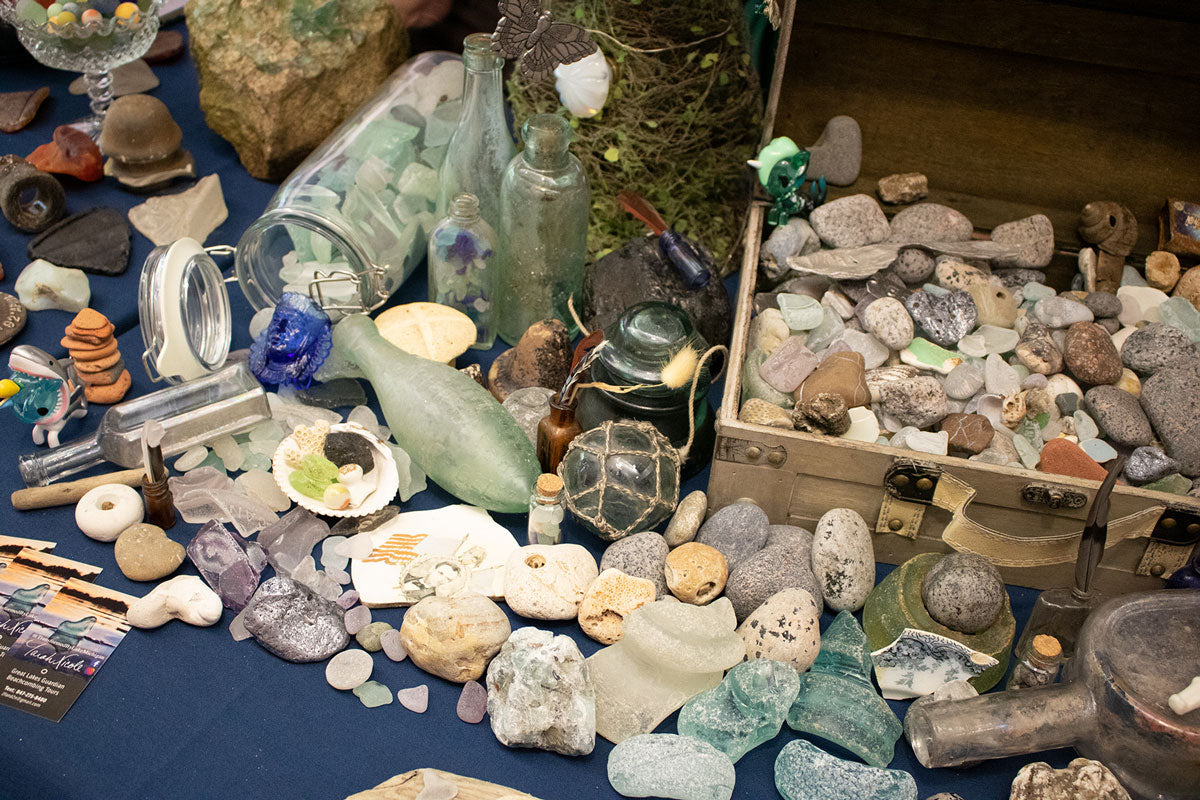Great Lakes Treasures


Great Lakes Now had some great coverage of the Sea Glass Association festival in Maumee Bay on Lake Erie. Reporter James Proffitt interviewed vendors, guests, festival director Roxann Williams, and Beachcombing publisher, Kirsti Scott.
Be sure to read the full article on the Great Lakes Now website, and check out more about Beachcombing below.
A magazine just for beachcombers
“We just published our 30th issue of Beachcombing,” said publisher Kirsti Scott, of Capitola, California. “It originally started in Buffalo, on Lake Erie.”
According to Scott, the Great Lakes are particularly rich grounds for beach combers due to a number of factors.
“A tenth of the U.S. population lives in the Great Lakes region, and they’ve been there for hundreds of years,” she said. “And for all that time huge shipping’s happened, railroads and ships. There’s more shipwrecks per square mile in the Great Lakes than any other place in the nation and people in older times threw things away, which meant in the water, so there’s just a whole lot of stuff.”
Scott, who is on the board of the NASGA, said she’s been pushing for a Great Lakes conference and festival site for years.
“I feel like a lot of people on the coasts and in other countries feel like you can only get beachcombing and sea glass and that stuff on oceans, when there is a huge population that beachcombs on the Great Lakes, just fabulous stuff.”
As an example, she cited the biggest beach glass find of all time: a 275-pound piece found on a Lake Erie beach in 2017. It has been pondered by museum officials and beach glass experts.
“They just don’t know what it was, no one knows,” Scott said of the clear glass piece, which is 12 inches tall and 64 inches in circumference.
And when it comes to marbles, Scott said, they were used as toys were mostly made in the Great Lakes states. But industrial marbles can be found, too.
“The second type of marbles that can be found in the Great Lakes are what they call railroad marbles, used to make fiberglass. Each one was used to make a finely spun fiberglass strand so many feet long, like hundreds of feet, and those can be found only in the Great Lakes.”
One more Great Lakes advantage over ocean beach combers? No tides.
“Anytime anyone goes beachcombing on the coasts, they have to go at low tide but on the lakes, people go anytime they want,” Scott said. “The bottom line is it’s a great, healthy fun hobby and it’s free if you live near the water.”







